Home » BLOG » Business Development » Effective business development = low risk + high trust
Effective business development = low risk + high trust
The best approaches to law firm marketing and sales share two characteristics: they aim to minimise perceptions of risk and to maximise feelings of trust between the decision maker and the firm.
For clients, it is crucial that trust is high and risk low when engaging lawyers. Their often-subliminal thought processes centre on issues such as:
- I don’t really understand what you are about to do. It is complex and, even if I have lots of experience in engaging lawyers, I won’t really know if I have received the right results until after the work is completed.
- The work will cost a lot of money. This is money that I am entrusted to spend wisely (and within limits and constraints) by the organisation that I work for. I need to be able to reconcile this expenditure with the results that are delivered.
- If it all goes wrong, there will be serious consequences for me and my organisation.
These three factors drive decision makers to make low-risk, high-trust choices when employing a law firm.
The same desire for risk minimisation and comfort in the brand is what leads clients to favour ‘big name’ firms for transactions of an important or ‘bet the company’ nature, even if the technical complexity of the work involved could be adequately undertaken by a less expensive firm. Essentially, the additional fee pays for a reduction in perceived risk.
That is not to say that price and perceptions of quality are not aligned. From tag lines such as ‘reassuringly expensive’ to anecdotes about what sort of person would hire a cut-price brain surgeon, it is clear that there is a strong linkage.
But, to be clear, this linkage only exists where quality is desired or required. Simply ratcheting up the price of work which is not perceived to be high risk (or where there is an abundant supply of firms that are able to undertake it) will only lead to failure.
More importantly, pricing which is unjustifiable and at odds with the market will terminally erode one of the two pillars of client confidence: trust.
The client’s inability to judge the quality of service and expertise of a firm in advance of the purchase creates a heavy reliance on the use of proxies in law firm marketing. Proxies are not guarantees of quality, but they are strong indicators of the level of service and expertise that will be provided.
There is evidence all around us of law firms using proxies. These include legal directory rankings, case studies, tombstone sheets, client references, industry awards, client quotations and positive press coverage. From the buildings that firms occupy to the materials they send to the voice on the end of the telephone, all touch points with the client convey messages as to the sort of firm it is and the position in the market that it occupies.
Looked at through the duel lenses of risk minimisation and trust maximisation, certain activities are more likely to create success than others. But, there is not necessarily a correlation between cost and effectiveness.
In parsimonious times, managing partners should apply a simple approach to their marketing and business investment decision making. Firstly, does the proposal appeal to the decision-maker’s drivers of lowered risk and/or increased trust? If not, why are you considering it? If it does, then does it have a stronger business case than other initiatives which also pass muster at the first level?
As many firms move towards the business planning season, simple criteria such as these cut through the morass of information, requests, plans and proposals to ensure that decision making is both speedy and focused on delivering value to the firm.
You may also like
Search
Categories
Recent Posts
- Fighting fit
- The Challenges Of Leadership Are Different To The Challenges Of Management
- The Cultural Dimensions Of Leveraging Institutional Knowledge
- A knowledge-led approach to business development is key to law firm resilience
- Team Morale Is Directly Linked To The Ability To Deliver Differentiated Client Services
